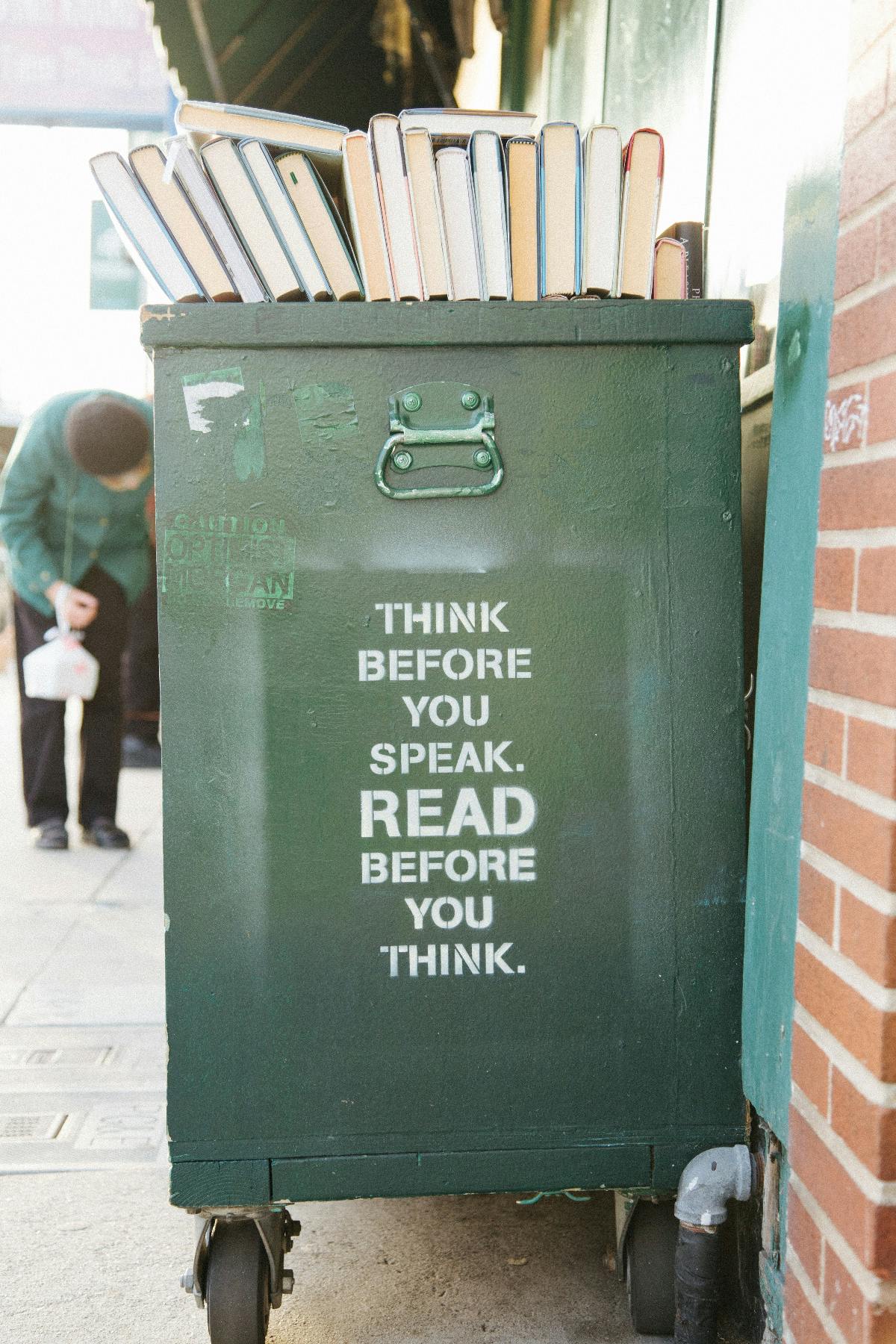
Several factors get in the way of clarity when communicating a specific idea and addressing a group. Some of these factors can not only bungle up your message; they can make you sound uninformed, less confident, and even kind of dim. In this article, we’re going to discuss one of these factors, and one you probably haven’t given much thought to but, you really should. Let’s talk about the filler word “like.”
Though terrifying and a pain in the tuckus, the pandemic has shown us some things about ourselves. How much ice cream we can eat in a day, how to be exceptionally creative or embarrassing on a zoom call, how comfortable a pair of sweatpants can be when they have the patina of a month without washing on them.
All those zoom meetings have also shown us that we can all afford to do better with communication. Making ourselves more precise and understandable is something from which everyone can benefit. This holds true in meetings for work and our personal lives.
Several factors get in the way of clarity when communicating a specific idea and addressing a group. Some of these factors can not only bungle up your message; they can make you sound uninformed, less confident, and even kind of dim.
In this article, we’re going to discuss one of these factors, and one you probably haven’t given much thought to but, you really should.
Let’s talk about the filler word “like.”
Like definition
If you’re a fan of Marion, the Librarian, or her colleague The Oxford English Dictionary, you’ll find these definitions for the word like;
- Preposition; Having the same characteristics or qualities to; similar to.<br />Ex; “They were like brothers.”
- Conjunction; “As though, as if.”<br />Ex; “ I felt like I had been hit by a truck.”
- Adjective: “(of a person or thing) having similar qualities or characteristics to another person or thing.”<br />Ex; “I responded in like manner.”
Another definition really gets to the heart of this article and why this seemingly innocuous word is a huge stumbling block for speakers. That definition is:
- Adverb; “Used in speech as a meaningless filler or to signify the speaker's uncertainty about an expression just used.”<br />Ex; “I was all like, and then I was like, and she was just like and we all were like totally, and then he was like so we decide like, no way …”
When the word is employed in this manner, it’s enough to like drive you like crazy.
The Thoughtless Like

As the last definition for the word expresses, we use like as filler, and it is meaningless, expresses uncertainty, which clouds up the flow of good conversation and speech.
It is also something that occurs without thought. You’re not thinking about the word, it simply shows up in your speech, and sometimes, if you’re not careful, it takes over the entire communication process.
Business moves at high speed. It moves at a pace that is not kind to indecision and does not suffer fools easily. Moving quickly and efficiently is imperative to stay ahead in business. And, the little things, the details, the nickel and dime stuff, usually end up sending the whole thing off the rails. The devil is in the details.
Suppose you’re spending money on marketing, advertising, inventory, and an excellent website to keep your business at the top of the Google search. Why are you ignoring a small detail that you can adjust free of charge to make you sound more intelligent and more precise? Better speaking is better communication and yields better results.
The Editor in our Heads
People love improv comedy shows and marvel at how performers can come up with such funny scenarios spur of the moment. One of the reasons these people can do so is because they have worked hard to remove the editor from their minds.
The editor is that voice that tells us things that cause us to overthink or judge ourselves. It’s the voice that tells you that you shouldn’t wear that particular item of clothing, or that you’re not good enough, or that you’re not as funny as Clive from accounting, but seriously, who is? It’s the voice that gives us the word “no” in a million billion variations. The editor is the voice that tells you you’re boring or you have nothing to say worth hearing. Or the words are not going to be there.
Thinking Quickly
Science has taught us that we can respond to stimuli in as little as 50 milliseconds or about one-twentieth of a second. It has also shown that we can react to that stimuli about ten seconds before realizing it. Which means we think faster than we think we think.
However, thinking fast does not automatically equate to speaking quickly and clearly. When you listen to those wacky improv artists, you’ll notice they aren’t talking a mile a minute. Because they don’t respond to their editors, they don’t feel the need to rush. They know every word is vital, and that part of the magic of improv is making the words come out sounding like everyday conversation.
For non-improv trained people, the editor is present and tells you that people will not want to listen to you speak, so you have to get the words out, don’t waste time, and keep it moving. When this happens, you’re suddenly talking faster than you can assimilate the information your brain is giving you, and then you end up with fillers.
Fillers are anything that stops the forward progression of your speech. It is “um,” or “ah,” it is repeated phrases such as “well,” “so” or, the big one, “like.” Each one of these fillers is your mind’s editor’s effort to find the “right” or “proper,” the “funny” or “captivating” words. Your editor is judging you, so you rush and your sentences become filled with fillers.
Identify the Filler

One of the most insidious aspects of the word like is that, for some, it has become so common, so ingrained in their speech patterns, they can no longer hear it.
The first step to correcting this speech-killing filler is to hear it. Identify it, and understand that you use, and perhaps, overuse it. The best way to do this is to have a recording device handy and turn it on when you’re speaking.
Record yourself when you’re just talking to friends or colleagues, not when reading a prepared script. Why? Think about this for a moment, when you write a speech to give to the masses, how often do you put the word like in there? Probably never as a filler.
Record yourself speaking at length and then, using a pen and piece of paper, put a check down every time you hear yourself use the word like. Don’t judge your voice. No one likes how their recorded voice sounds, but that’s not the point of this exercise. The point is to identify how much you rely on the filler word like.
Once you’ve identified and gotten over the horror of how often you use the word like without knowing it, you can now embark on banishing it from your speech.
The Beauty of Specificity
When it comes to business, being specific is being successful. If you’re marketing to a target audience, specificity will save time and money and up your conversion rates. Specificity is golden in this situation; knowing what the potential customer wants, as opposed to needs, is the kind of thing specificity is perfect for. Check out this article for a deeper dive.
Specificity gets everyone on the same page, it gets to the heart of the matter, and it pinpoints the customers you want to spend the marketing dollars to connect with.
Filling your speech with “like” makes what you’re saying sound unspecific, and it lacks confidence.
Read this sentence aloud:
“We will target this market and, like, find ways to like grab their attention and get them, like onboard.”
Now, this one:
“We will target this market and find ways to grab their attention and get them on board.”
If you don’t think the first sentence is how you speak, get out your digital recorder and have lunch with friends. You do, and you probably don’t even notice it. But, when you read those sentences, which one is how you’d rather sound?
It may be subtle; however, by removing the “like,” you sound more confident and grounded. Your thought is a clear straight line from beginning to end. It is specific.
Banishing Like

Unlike the center of a Twinkie or a cheese dog, “like” is not a delightful creamy filler. If it doesn’t bring you joy, why keep it around?
To this point, you’ve identified that yes, you indeed do use the word too often. You understand how it causes your thoughts to break apart and make you sound less confident and clear. The next step is to rid your speech of the little bugger.
There are a few simple ways you can do this. This will take time, so be patient with yourself. The results are worth it.
We’ve already discussed recording yourself when you speak. The next step is hearing the word in action. The best way to do this is to simply slow down and breathe.
Breathe
Here’s a fun fact. The word inspiration is often associated with a flash of creative brilliance. However, another definition of the word is the first step in breathing. When we take a breath in, we inspire. Ask any of those wacky improv artists what the worst thing they can do during a performance is, and they will usually say stop breathing.
They need to inspire to be inspired.
Our bodies will force us to breathe when we are in fight or flight mode. Since most people hate speaking in front of an audience, and two other people on a zoom call are certainly an audience, if you allow your body to do its work, you’ll breathe easily or even yawn. Yawning is a natural reflex that tells our bodies to relax and prepare for what’s coming next.
So, slow down, and breathe.
Prepare
Even a slight amount of preparation will slow you down and give you confidence in what you’re saying—a quick check of material you want to cover in a meeting—a few notes to provide you with a base to speak from. Preparation will allow you to be in better control, and when you’re in control, you’re less likely to fall back on filler words such as like.
In social situations, of course, you’re not going to be able to prepare unless you want to give everyone note cards and hold them to discussing topics you’ve prepared at home. In these cases, in social conversation, you’ll want to rely on slowing down, listening, and breathing.
Trust yourself
You have something to say; it’s useful, helpful, interesting information. You should trust that you are worth listening to and that once people have heard you, they will be better off.
If your speech is full of filler, the chances that people listening to you have gained all the information in a clear, concise manner is less likely. What you have to say is worth hearing, don’t cloud it up with filler.
Also, trust that the words are there, in your head, ready to be employed. Those ums and ahs and likes are just the editor trying to trick you. You will never run out of words. If you’ve slowed down, you’re breathing, you’re trusting your preparation, and you have confidence in yourself, there is no need for filler.
A Fun Game
When seeking to banish the filler like from your speaking life, it helps to work with a friend who is on the same journey of clarity and confidence. Working with someone who can listen to you in a meeting or daily speaking and give you hints about how you’re doing is great. Another’s ears are always helpful.
To get you to a place where you’re more confident and trusting that the words you need are there in your mind and that you don’t need fillers, here’s a game you can play.
The game is called Expert. The rules are simple. Two people, one is an interviewer, and the other is the world-renowned expert on everything. No matter what the topic, the expert is unquestionably the expert on it. So, the interviewer simply asks the expert about anything, and the expert talks about it.
When playing this game, the focus is on the expert. When taking on the role of expert, here are a few things to understand;
- You are the expert on everything, so no answer is ever wrong, dumb, or questioned.
- You can move from topic to topic with ease and confidence because you are the expert on everything.
- Speak smoothly and confidently because there is never any doubt that whatever comes out of your mouth is the exact correct answer.
These rules remove major stumbling blocks for our speaking; the lack of confidence, the fear of being wrong, and the need to have the right words always available.
The interviewer will ask various questions when playing this game, but their main job is listening for and marking down filler words.
Once you get good at this and have fun, you’ll notice that you no longer need fillers. The title of expert frees you, and you understand that all the information you’re giving is valuable and a gift to the “audience.”
Once you’ve become confident with being the expert, bring that into your daily life.
Life Expert

Before you have a meeting, remind yourself that you are the expert on the topics at hand. You have the information that people need and want, and you are giving them this wonderful gift of information that will make their lives easier and jobs better.
Take the confidence and the fun of the expert game into your daily life and notice how the word like slowly slips out of your speech. You no longer need fillers. You have confidence, and you trust what you’re saying.
Speaking Better
It’s not going to be easy; we know that. The word like has become akin to our heartbeat, we know it’s there, but we rarely hear it. Identifying the overuse of the word is the first and the most crucial step.
During the process, have patience with yourself, work with a partner to make it easier, and keep the goal of more precise, more concise, and confident speech in sight.
Speaking clearly makes those who hear you feel safe and confident that they can trust you, and it will help them understand what you want quicker and more thoroughly.
Put some time and work into this, and you will soon feel like you’ve been a master speaker your entire life as opposed to feeling like you’ve been like talking for like ever.
Paul Kiernan is a Content/Copywriter for ThoughtLab and an actor with over 35 years of experience on stage and screen. He is also a public speaking coach and an improv artist, helping people feel more confident speaking before audiences large and small.

